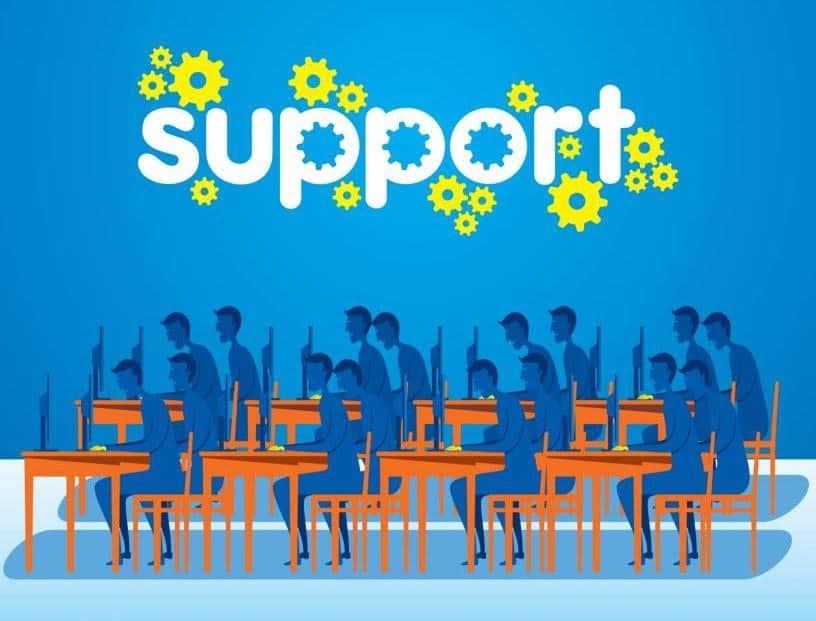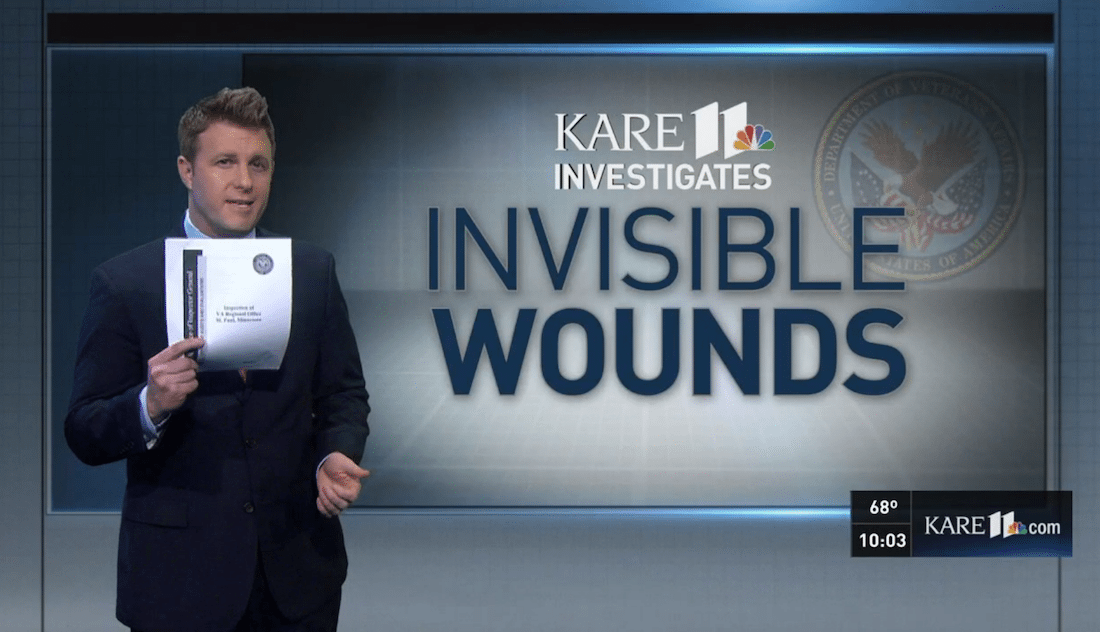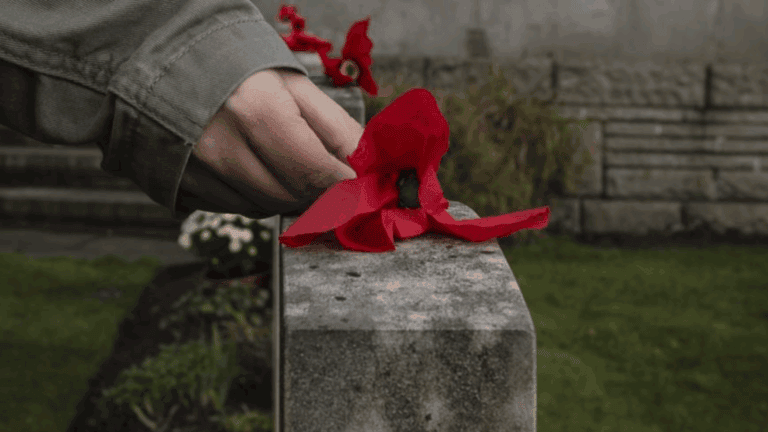Jeff Bates: Serving Veterans as a Crisis Line Psychologist and Army Captain
Jeff Bates, who recently took on the role of director of Crisis Operations at the Veterans Crisis Line and also serves as a captain in the Army Reserve, exemplifies the kind of dedication that underscores the complex landscape of veteran support in America. Coming from a lineage steeped in military service, with both grandfathers having served in World War II, Bates’s commitment is not just personal but a continuation of his family’s legacy of service.
“This decision impacts our whole family, and I appreciate the support of my wife and boys,” Bates reflects, underscoring the collective sacrifice and commitment service entails.
A Moment of Commitment
On February 15, in a ceremony filled with hope and commitment at the Veterans Resource Center in Ocala, Florida, Bates was sworn in, surrounded by family, friends, and colleagues. This moment marks not just a personal milestone for Bates but also highlights the ongoing efforts within the Department of Veterans Affairs (VA) to adapt and respond to the evolving needs of veterans.
A Career Dedicated to Veteran Well-being
Bates’s career journey—spanning roles focused on suicide prevention, serious mental illness, and substance use issues—sheds light on the critical areas where the VA is striving to make a difference. His transition to the Veterans Crisis Line signifies a strategic shift towards frontline services, aiming to address the immediate needs of veterans in crisis.
“The job is difficult, but it is easy to lay my head down at the end of a day or night knowing that the work we do makes a difference,” Bates says about his motivation to join the crisis line, highlighting the personal fulfillment derived from serving those in need.
The Frontline of Crisis Intervention
The essence of Bates’s work and the broader mission of the VA Crisis Line is to provide a lifeline to veterans during their darkest hours. This initiative is crucial, yet it underscores the necessity for systemic improvements within the VA to prevent these crises from occurring. It’s a reminder that while intervention is vital, so too is the need for comprehensive support systems that address the root causes of veteran distress.
Continuing the Call to Action
The commitment of VA employees, as personified by Bates, to saving lives is commendable. However, this dedication also highlights the ongoing challenge of ensuring that such efforts are part of a larger strategy focused on preventative care, mental health support, and seamless access to services for veterans.
A Holistic Approach to Veteran Support
As Bates steps forward in his role, both in the VA and the Army Reserve, it’s an opportunity to reflect on the importance of a holistic approach to veteran support. The story here isn’t just one of individual service but a call to action for continuous improvement and innovation within the VA. By focusing on areas that truly impact the well-being of veterans—such as enhancing access to quality mental health care, streamlining services, and improving outreach—we honor their service with actions that match the depth of their sacrifice.
“Thank you for standing in the gap so we can enjoy this great nation. Your willingness to serve is a model for who we should be,” Bates shares, extending a message of gratitude to veterans and reaffirming the VA’s commitment to their well-being. “The Veterans Crisis Line is here for you if you ever find yourself or another Veteran or service member in crisis. You matter, and we cannot let the darkest days win.”
Jeff Bates’s journey serves as both inspiration and a reminder: the path to effectively supporting our veterans is ongoing. It requires not just immediate interventions but a steadfast commitment to addressing the comprehensive needs of those who served. Through collaborative efforts, critical examination, and a focus on sustainable support systems, we can aspire to a future where the VA fully embodies the promise of unwavering support for our veterans.
Frequently Asked Questions (FAQs)
What is the Veterans Crisis Line?
The Veterans Crisis Line is a free, confidential lifeline for veterans and their families facing mental health challenges or crises. It offers 24/7 access to trained professionals who provide support, resources, and crisis intervention.
How can someone access the Veterans Crisis Line?
Individuals can access the Veterans Crisis Line by calling 988 and pressing 1, sending a text to 838255, or initiating a confidential chat at VeteransCrisisLine.net. The service is available 24/7, ensuring immediate access to help.
What types of issues can the Veterans Crisis Line help with?
The Veterans Crisis Line assists with a wide range of issues, including but not limited to, mental health concerns, substance use problems, suicidal thoughts, and immediate crises. The trained responders offer support and can connect veterans with VA services and resources.
Can family members of veterans use the Veterans Crisis Line?
Yes, family members of veterans can also use the Veterans Crisis Line for support, whether they are concerned about a veteran or seeking help for themselves. The line is a resource for anyone who plays a role in a veteran’s life.
What steps is the VA taking to improve mental health services for veterans?
The VA is continuously working to enhance its mental health services through expanding access to care, increasing the number of mental health professionals, incorporating innovative technologies like telehealth, and improving early intervention and preventive services. Initiatives like the Veterans Crisis Line and increased focus on holistic care are part of the VA’s efforts to address the complex needs of veterans.




I have had the VA to include three conditions that 1. was not filed by me but it was written under my PTSD claim and the examiner submitted false statements that modified my military’s statements trying to allege that it was service connected without any evidence because they were false. it granted me 100% fraudulently.
2. I was never diagnosed with BPPV condition then after my Medicare doctor denied that I suffered it then the VA changed it to PVD. I told the VA in 2015 that I did not suffer with any vertigo or dizziness [PVD] but I was granted 30% anyway. Then the Board said that I had requested for an Increase while I had not.
3. I have told the VA that I suffer with a total loss of my balance caused by Peripheral Neuropathy which was diagnosed by my Medicare Neurologist in 2015 and not Vertigo and Staggering as the VA has written in my claim. There is something really wrong with the VA and the VHA as this has been going on since 2005.
Another thing a lot of the mental health staff will do, usually not the nurses or psychiatrists, but really the social workers or psychologists, you give them any shit or you ain’t making what they consider to be progress, or their biases come into play.. they’re gonna write you off under the guise of some psychological complex that they don’t want to deal with and don’t have to. If you’re behaving a certain way they’ll suggest personality dysfunction and then it’s game over and they’ll just bullshit you and waste your time every time you walk though the door. And they won’t tell you what they really think because it’s their job to see you. Just one of the many reasons why VA mental health care outside of an inpatient setting won’t work. In the private market, you have a choice to see whoever you want and there’s a lot of people out there. At the VA there’s one or two overworked sots who would rather not see that many people anyway. If you come in there and they don’t like you or something, they’ve got every incentive in the world not to treat you. And even the good people there won’t suggest it’s a less effective system because they profit from it. That’s why I advocate for it being sued out of existence somehow because the shit it used for political purposes that both parties play off of. It won’t go away by decision from our representatives.
You call and start talking crazy..they gonna call police. You might as well call police on yourself. That and then they’ll be able to track your phone forever if they wanted to. I don’t even give them my phone number. Too bad people can’t just go to VA or outside care instead of call that number. In a bad mood and go ape shit? They diagnose you with personality disorder and tell the cops to take you to jail instead